



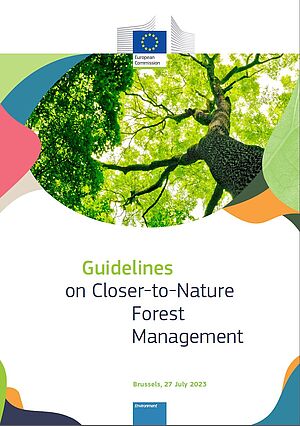
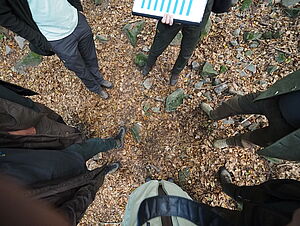

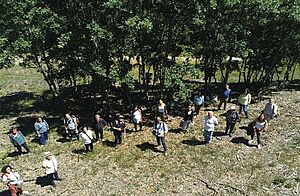
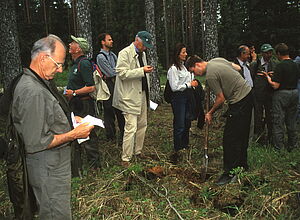

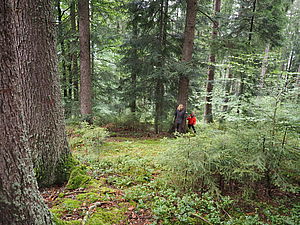
Published after the 3rd international congress in June 2000 - held under the general heading of “Man- Nature- Technics” at the Hanover EXPO 2000 exhibition
The Hannover Declaration is also published in the "Pro Silva Principles" booklet (2.edition 2012)
In contrast to many other parts of the world, only rarely did the systematic management of European forests commence in untouched virgin forest. Very few areas of virgin forest in Europe had escaped exploitation or destruction by man over the past 3000 years or more, these being mainly in Eastern Europe and Scandinavia. These few remaining virgin forests are valuable natural heritage, which should be protected.
On the contrary, many of the forests which we see today have been systematically recreated over the last two centuries, on areas where forest had been largely removed or replaced by heathland, on former agricultural land, or where the forest had been over-exploited and impoverished. This restoration has given these forests new life, with an increase in biomass, timber production and (in some instances) biodiversity.
In spite of the increasing demands of civilisation on our land area, a relatively large proportion of many parts of Europe is currently covered by forest, and this provides a livelihood for numerous forest owners and others in related occupations. Forest is the main resource for timber industry. At the same time, these forests are the most important ecological element in many cultivated landscapes. The large area which they occupy and their great importance in the landscape and in the ecology of the area contrast with their low profile in political and economic circles, the media, and society in general.
Considering the facts:
PRO SILVA. the European federation of foresters advocating forest management based on natural processes. at the end of its 3rd international congress in June 2000 (held under the general heading of “Man- Nature- Technics” at the Hanover EXPO 2000 exhibition) states that:
PRO SILVA wishes to make the following points, for the attention of politicians, dministrators, institutions, lobbyists, and the media:
6. There is a need to improve public understanding of forestry and the way in which the forester can work in an ecologically acceptable way in the employment of appropriate methods of silviculture.